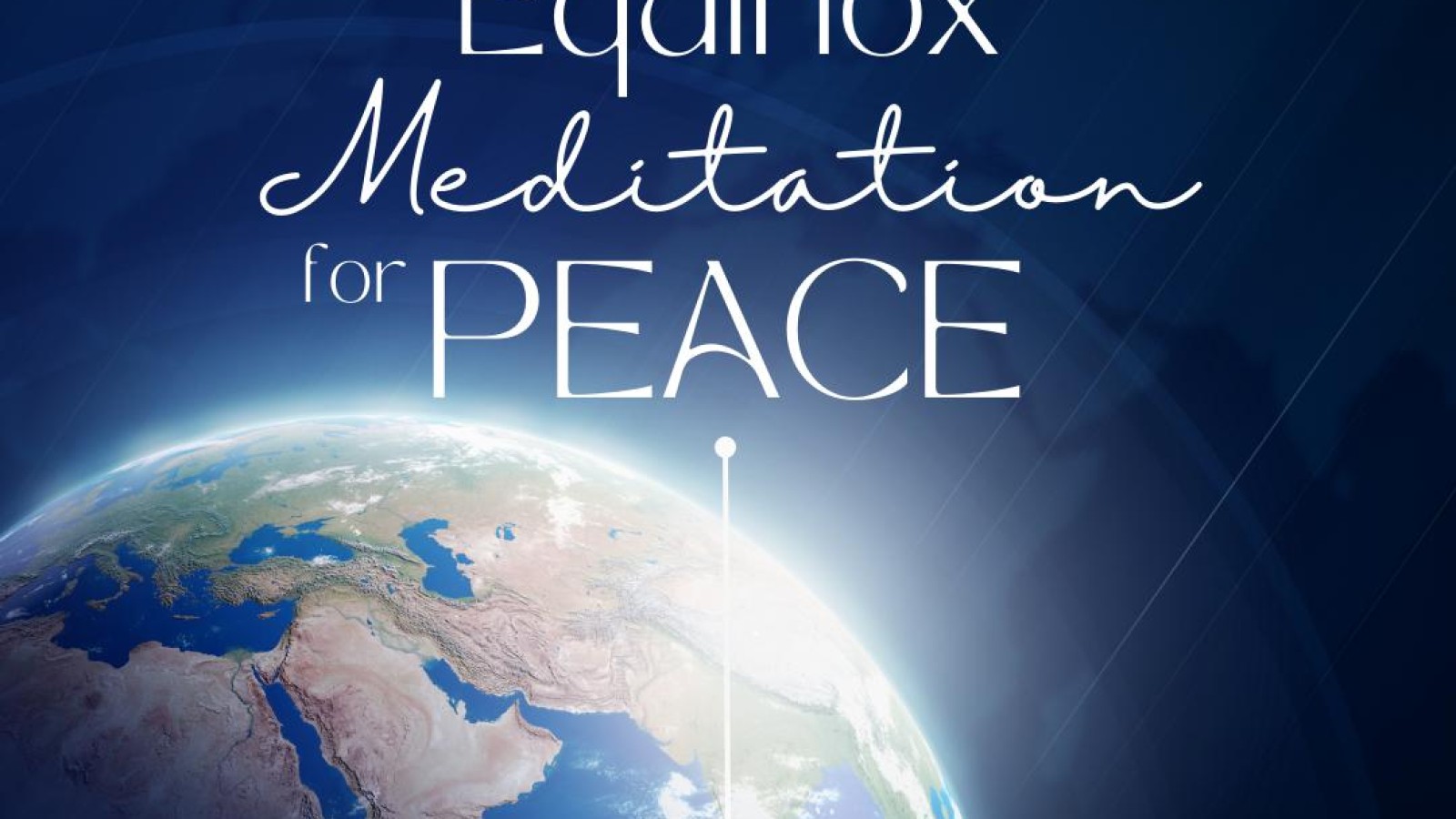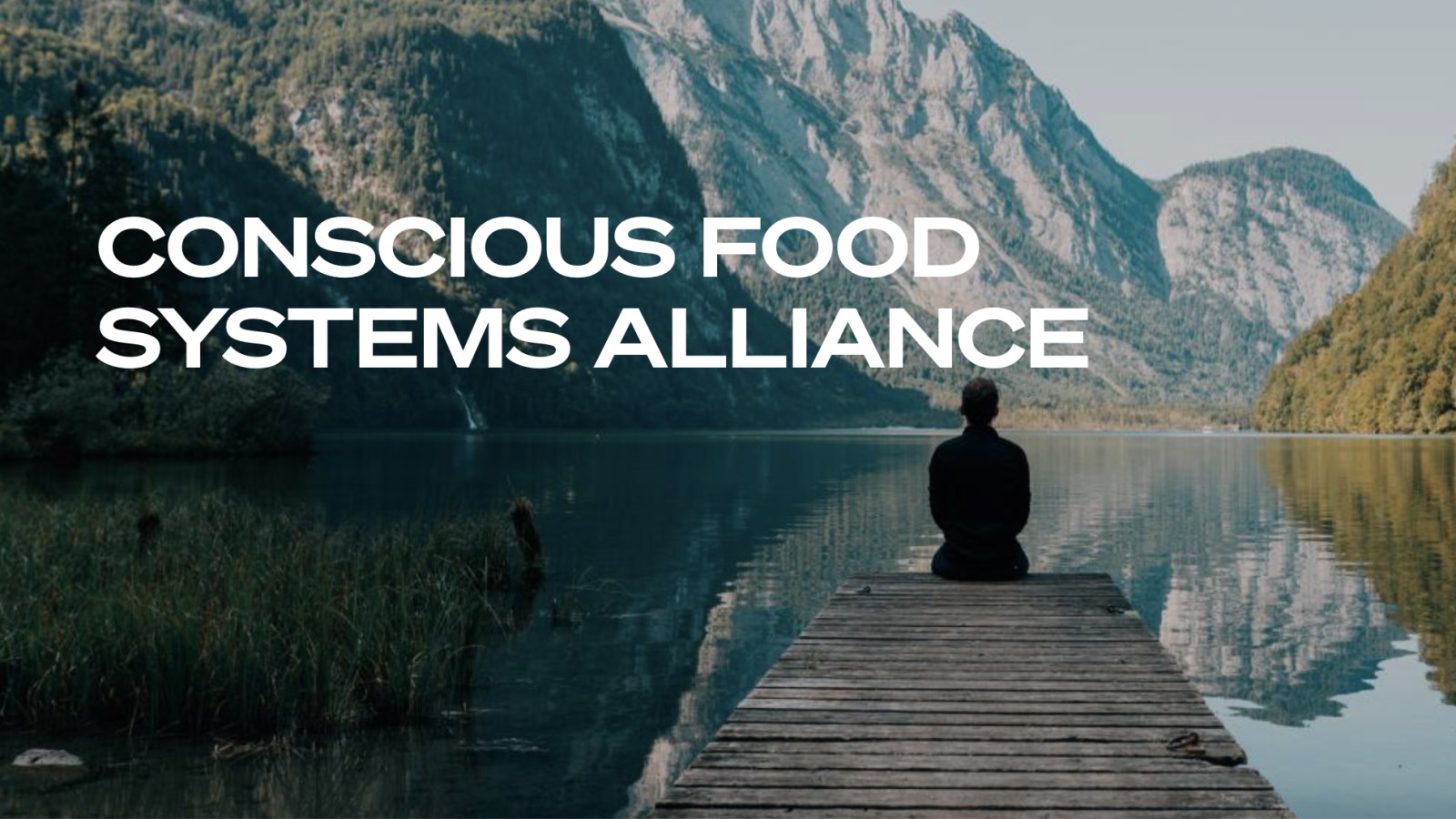“Creating regenerative systems is not simply a technical, economic, ecological or social shift: it has to go hand-in-hand with an underlying shift in the way we think about ourselves, our relationships with each other and with life as a whole”
Daniel Christian Wahl, Author of Designing Regenerative Cultures (2016)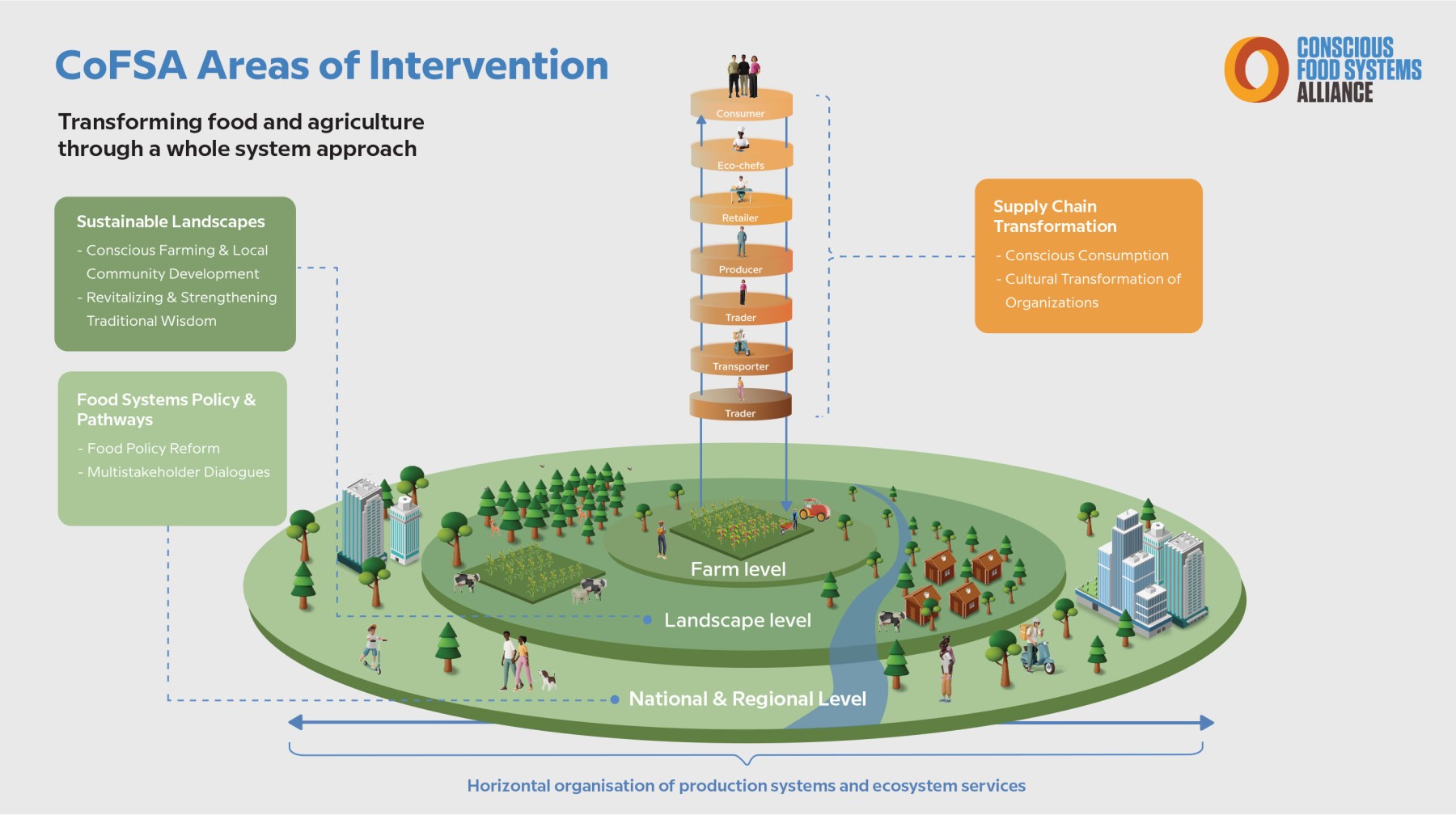
Food connects us with one another, our cultures and our planet. Rather than nourishing our collective health and well-being, however, food systems are at the heart of the social and environmental crises we face (Shukla J. et al. 2019; FAO and UNEP 2021; Kopittke P. M. et al. 2019).
Despite significant investment and effort towards transforming food systems, the solutions emphasized so far are not delivering the necessary impact. This impasse calls us to examine more deeply the root causes of our crises and the structural barriers to transformation.
There is a growing recognition that regenerating our planet and communities requires an evolution of our mindsets, values and worldviews, as well as the cultivation of certain transformative personal qualities and skills. The latest IPCC reports on climate change mitigation and adaptation highlight for instance the role of “inner transitions” and inner capacities of individuals, organizations, and societies as a lever for accelerating the transition in the context of sustainable development. 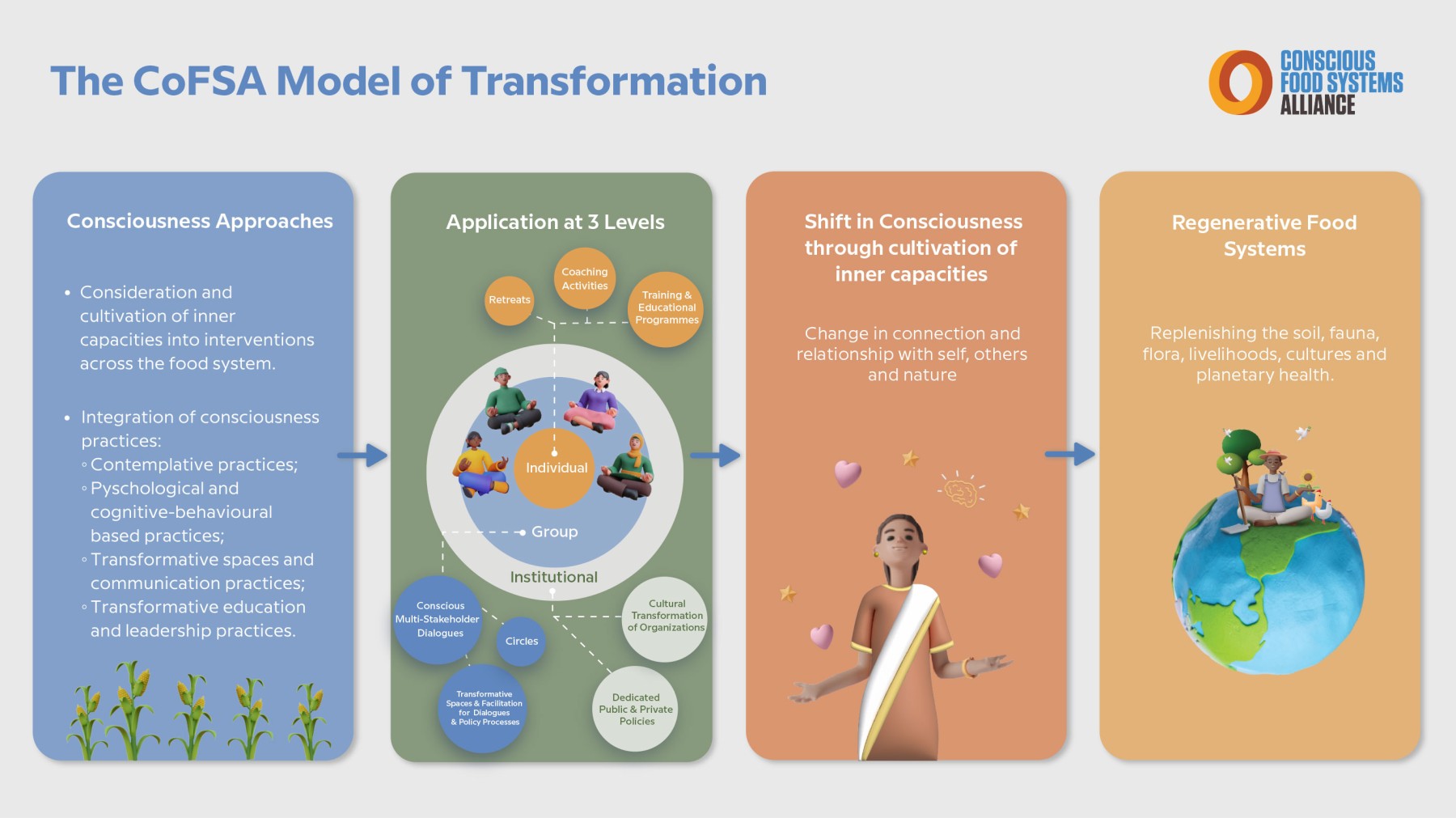
The Human Development Report (2020) likewise emphasizes that: “Nothing short of a wholesale shift in mindsets, translated into reality by policy, is needed to navigate the brave new world of the Anthropocene, to ensure that all people flourish while easing planetary pressures”.
To transform food systems, we must work not only on policy, research and project implementation, but also on the inner drivers of individual, collective and institutional behaviours. Increased connection to ourselves, each other and nature can activate the transformative qualities and skills needed to support the transition to regenerative food systems.
Unlocking Food Systems Transformation Through Consciousness Approaches
Launched in late 2022 after two years of incubation with partners, the Conscious Food Systems Alliance(CoFSA), convened by the United Nations Development Program (UNDP), supports the cultivation of inner capacities of food systems stakeholders as a key complementary approach for food systems transformation. CoFSA’s journey has been an emergent process supported by the commitment of a diverse set of members and the quality of relationships they have built. 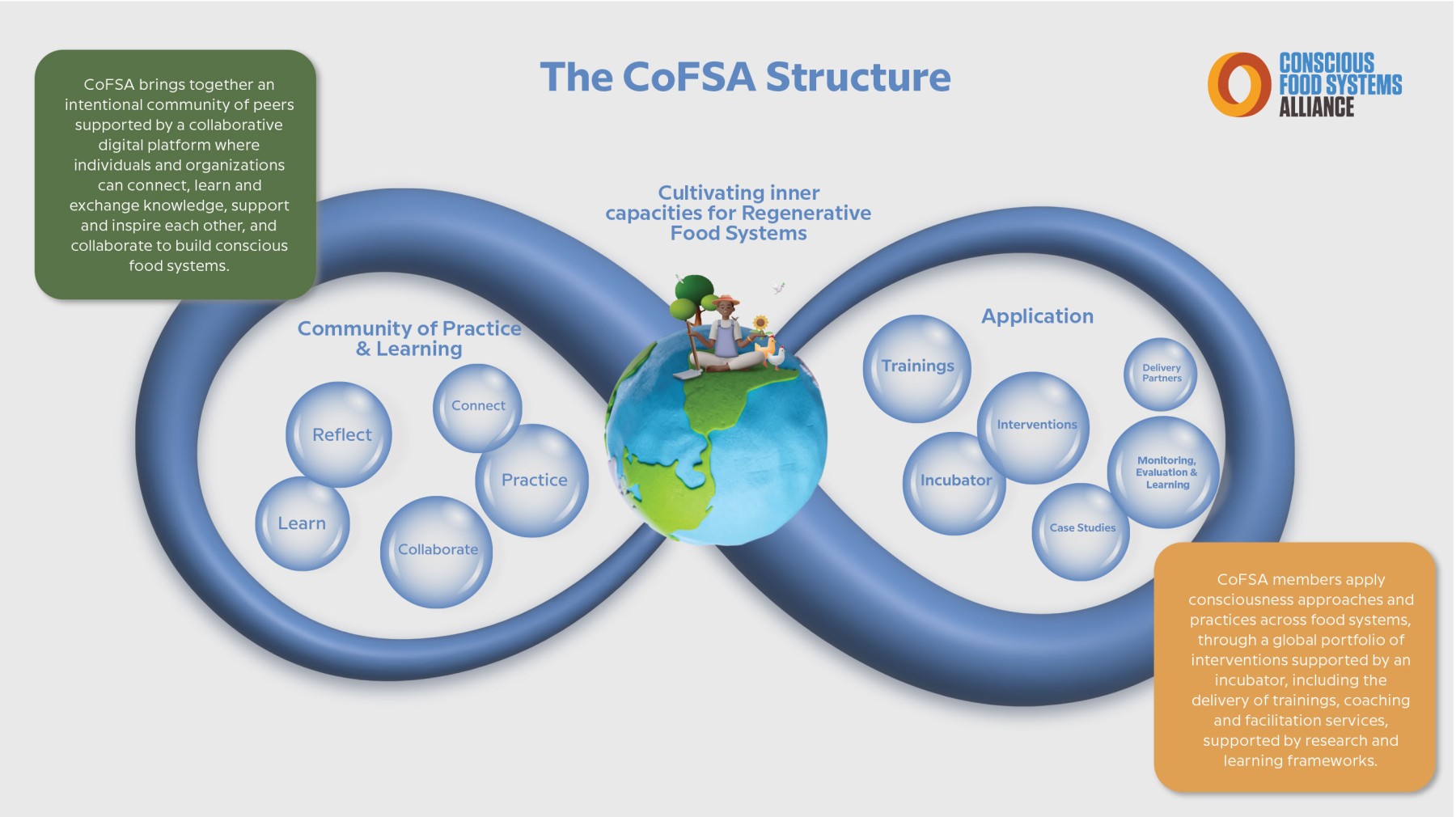
During the incubation time, foundational documents were produced including its Manifesto (UNDP, 2022a), the Rationale for Action report (Legrand, T., et al., UNDP, 2022), Theoretical Foundations Report (Wamsler C., et al., UNDP, 2022), and Collection of Case Studies (UNDP, 2022b).
The Alliance was publicly launched in October 2022, together with the establishment of a governance framework, a Community of Practice and Learning and a Conscious Food Incubator. CoFSA applies consciousness approaches, which integrate the consideration and cultivation of inner capacities into interventions, across all levels. Consciousness approaches can leverage certain practices which actively support the cultivation of inner capacities.
These consciousness practices include a vast range of contemplative mind-body practices, often rooted in a variety of wisdom-based traditions (e.g., nature connection and mindfulness), as well as psychological and cognitive-behavioural based practices (e.g., self-reflection and-inquiry practices), transformative spaces and communication practices (e.g., deep listening and Non-violent Communication), and transformative education and leadership practices (e.g., experiential learning).
CoFSA is committed to working with a diversity of consciousness approaches and practices that support the cultivation of inner capacities, according to their relevance in different cultural contexts, in particular local traditional wisdoms.
CoFSA’s principles to cultivate inner capacities emphasize the need for context-specific and culturally relevant interventions, founded on respect and equity, as well as awareness of power dynamics. CoFSA approaches food systems transformation by working with all relevant stakeholder groups across food systems. CoFSA interventions can support certain practices or learning environments that support individuals and/or groups to tap into their inner potential and nourish transformative inner capacities.
In addition, CoFSA interventions can leverage the current political and institutional landscapes by systematically mainstreaming the consideration of inner capacities into existing institutions, structures and systems. The aim of the latter is to support the structural and political conditions required for the emergence of a more regenerative food system from the inside-out (Wamsler et al., 2021).
Conclusion
The Conscious Food Systems Alliance has already built a solid basis for work. It has framed a new narrative on food systems transformation highlighting the complementary role of inner capacities and consciousness practices, as well as a clear agenda for action. A movement of more than 250 members dedicated to this agenda, and more than a thousand five hundred people following this work, has been initiated.
Throughout this transformative process, deep bonds have been created among core members, a community of practice and learning built and Implementation through trainings and pilot interventions has started.
Bibliography FAO and UNEP. (2021). Global Assessment of Soil Pollution: Report. Rome. https://doi.org/10.4060/cb4894en IPCC. (2022a). 2022:
Climate Change 2022: Mitigation of Climate Change. Contribution of Working Group III contribution to the Sixth Assessment Report of the Intergovernmental Panel on Climate Change.
IPCC. (2022b). 2022: Climate Change 2022: Impacts, Adaptation, and Vulnerability. Contribution of Working Group II to the Sixth Assessment Report of the Intergovernmental Panel on Climate Change.
Kopittke P. M., Menzies N. W., Wang P., McKenna B. A., Lombi E., (2019). Soil and the intensification of agriculture for global food security. In Environment International, Volume 132, 2019. https://doi.org/10.1016/j.envint.2019.105078
Legrand, T., Jervoise, A., Wamsler, C., Dufour, C., Bell, R., Bristow, J., Bockler, J., Cooper, K., Corção, T., Negowetti, N., Oliver, T., Schwartz, A., Søvold, L., Steidle, G., Taggart, S., Wright, J., (2022, June).
Cultivating Inner Capacities for Regenerative Food Systems: Rationale for Action. United Nations Development Programme UNDP. Shukla J., et al, (2019).
IPCC, 2019: Summary for Policymakers. In: Climate Change and Land: an IPCC special report on climate change, desertification, land degradation, sustainable land management, food security, and greenhouse gas fluxes in terrestrial ecosystems.
UNDP. 2022a. The Conscious Food Systems Alliance Manifesto. consciousfoodsystems.org/wp-content/uploads/2022/10/COFSA-Manifesto.pdf
UNDP. 2022b. The Conscious Food Systems Alliance Collection of Case Studies. Annex-I_CoFSA-Case-Study-Collection1.pdf (consciousfoodsystems.org)
Wamsler, C., Osberg, G., Osika, W., Herndersson, H., & Mundaca, L. (2021). Linking internal and external transformation for sustainability and climate action: Towards a new research and policy CoFSA – Rationale for Action Report 2022 62 agenda. Global Environmental Change, 71, 102373. https://doi.org/10.1016/j.gloenvcha.2021.102373
Wamsler C., Bristow J., Cooper K., Steidle G., Taggart S., Søvold L., Bockler J., Oliver T.H., Legrand T. (2022). Theoretical foundations report: Research and evidence for the potential of consciousness approaches and practices to unlock sustainability and systems transformation. Report written for the UNDP Conscious Food Systems Alliance (CoFSA), United Nations Development Programme UNDP.
Woiwode, C., Schäpke, N., Bina, O., Veciana, S., Kunze, I., Parodi, O., Schweizer-Ries, P., & Wamsler, C. (2021). Inner transformation to sustainability as a deep leverage point: Fostering new avenues for change through dialogue and reflection. Sustainability Science, 16(3), 841–858. https://doi.org/10.1007/s11625-020-00882-y
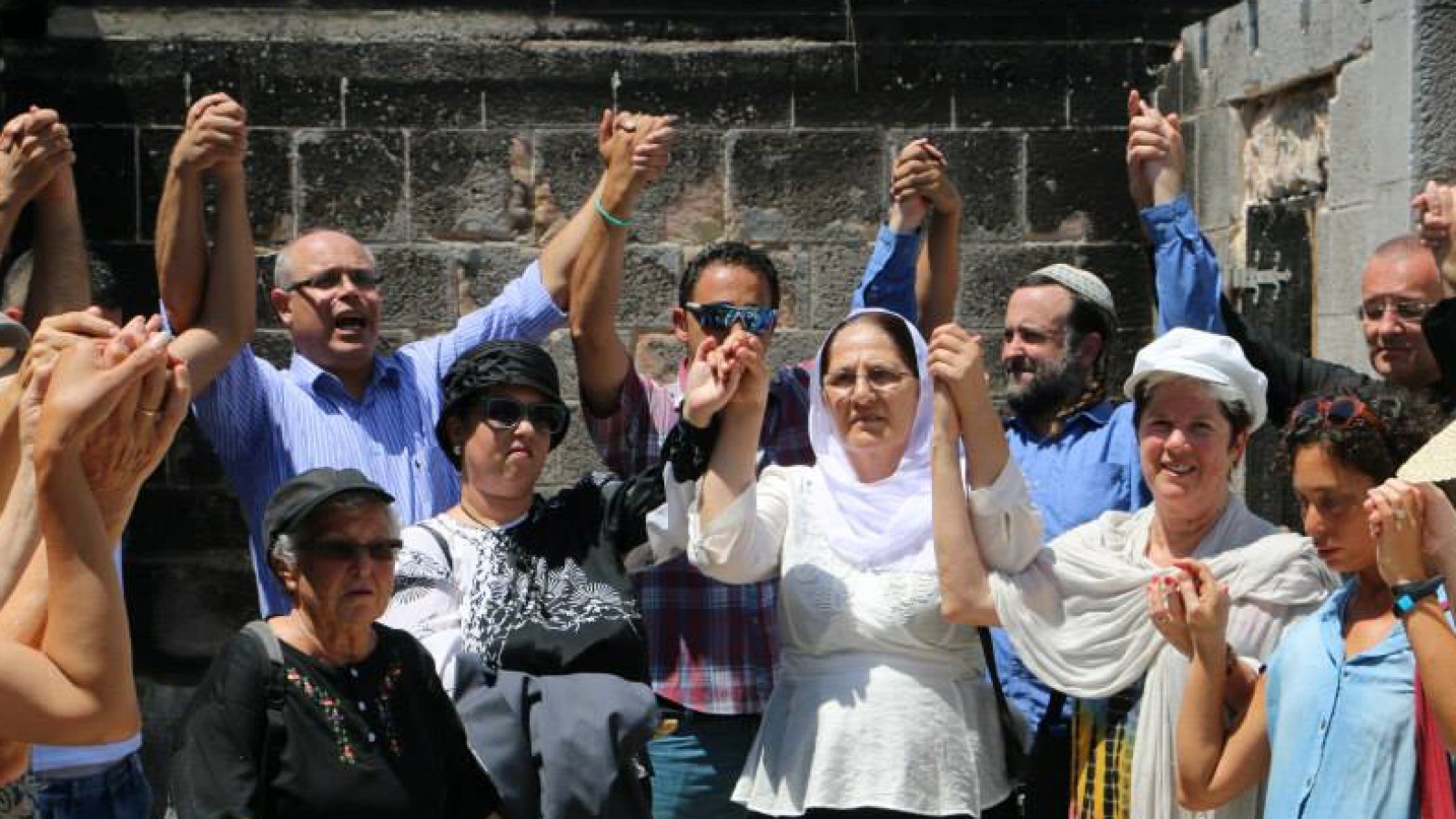
Praying together for peace
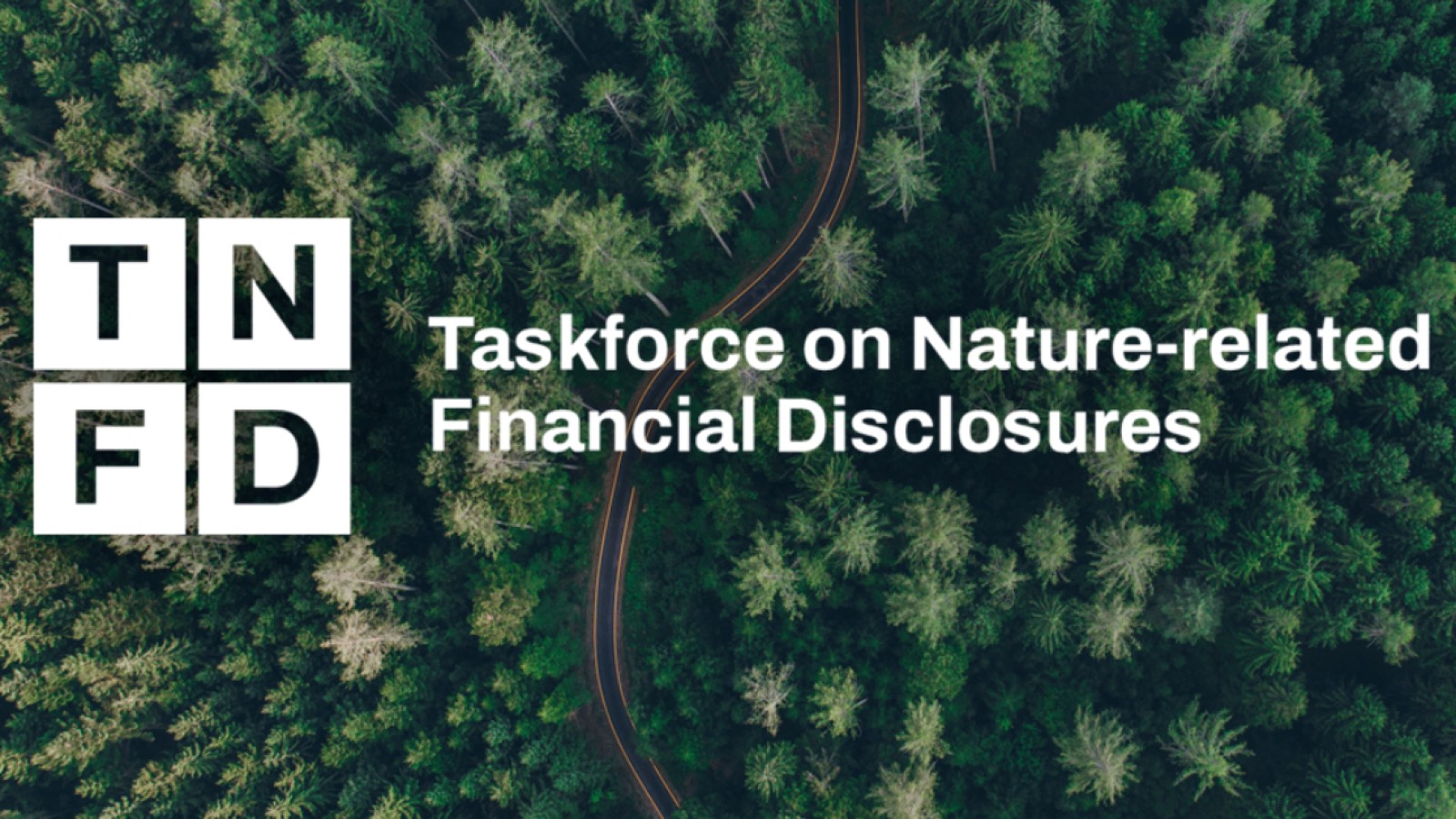
Our economy as part of nature
